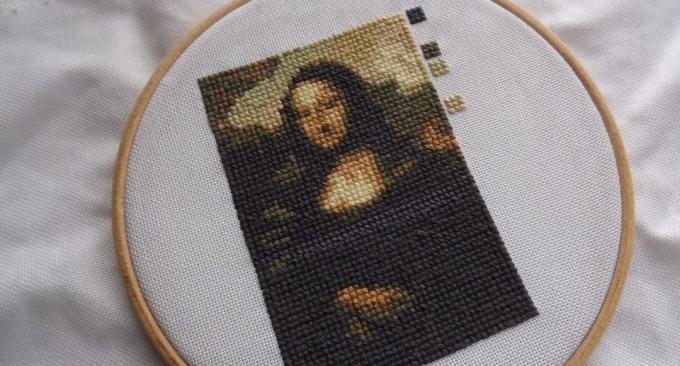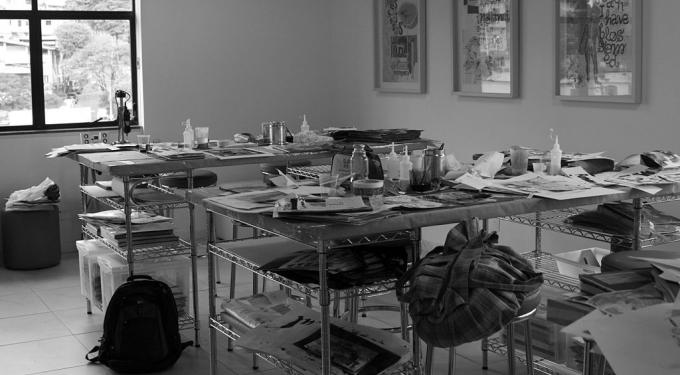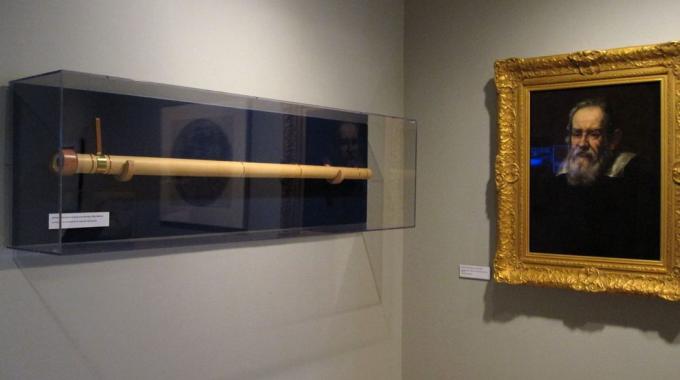Creativity - more than 10,000 hours of practice
Inspiration / / December 26, 2019
Probably many have heard that in order to achieve excellence in any business you need to devote 10,000 hours. Rule 10 000 hours It was described in the book by the famous author Malcolm Gladwell (Malcolm Gladwell). He made it on the basis of the research psychologist Anders Eriksson (Anders Ericsson), which was attended by students of the Academy of Music in Berlin. The study found that the most promising and talented children to 20 years were behind him about 10 000 hours of playing the violin.
In the book Peak: Secrets from the New Science of Expertise psychologist Anders Ericsson and journalist Robert Poole (Robert Pool) proposed the concept of development of almost any skill with the help of deliberate practice. Deliberate practice is described in their book, it consists of a set of techniques: goal-setting, breaking down complex tasks on part of the development of complex scenarios possible developments out of the comfort zone and getting constant feedback communication.
But, as the authors note, these techniques are applicable to the areas in which the rules are set long ago and passed on from generation to generation. For example, chess, sports and music.
The principles of deliberate practice will not be as effective for employment in which there is little or no competition, such as gardening or other interests, as well as creative, and many other modern professions: business manager, teacher, electrician, engineer, consultant.
When the repetition does not lead to success

Deliberate practice is really important, for example, in chess and symphonic music, because they are based on consistently repeatable actions, repeated over and over again. However, for most creative areas of the purpose and methods success constantly changing, and the monotonous behavior only hurts.
Writers can not produce the same novel or stories with monotonous scenes and expect that the public will once again be delighted.
The artists are under constant pressure not to repeat what they or someone else did before. And it is this pressure causes them to go forward and create something original.
A work of art can quickly lose its ability to surprise. How many times Lady Gaga wore a meat dress your before people got sick of it? If we were using the technique of deliberate practice, created a meat dress and wore it on every Halloween, who would appreciate her personality?
Creativity - more than expert opinion
Although creativity is often based on deep knowledge of art - it is something more than the result of the work of experts. Because work must be original, significant and surprising.
Original in the sense that the creator is rewarded for abandoning conventional wisdom, and to go beyond the standards.
Significant in the sense that the creator must meet some of the practical function, or to introduce a new interpretation. It constantly raises the bar for what is considered useful.
Finally, the result of creativity should be unexpected and surprise, not only for the Creator, but also for everyone else.
Over the past 50 years there have been many systematic studies that have examined the career path of creative people, their character traits and life experience. The data obtained are inconsistent with the fact that deliberate practice is the main or most important part of creativity. Here are 12 factors that only confirm this.
1. Creativity is often blindly
If the work was based only on deliberate practice, we could just train for recognition. But in fact this is not possible: the creator can not know for certain whether the good will of its creation. Sometimes society is not yet ready for such an idea - a creative product must comply with the spirit of the time. With the experience to creative people intuitively understanding comes the fact that like the public at the moment, but still in the works will always be a certain amount of uncertainty.
Dean Keith Simonton (Dean Keith Simonton), an American scholar of psychologyOnly someone possessing infinite wisdom may determine that now is a good time to experiment, but not for theory for writing poem instead plays for writing portrait rather than landscape or compositions instead of the composition Opera.
2. Creative people often work in chaos

While the practice of different consistency and stability, creativity is characterized by a lot of trial and error. There are many examples where the geniuses created masterpieces, and after them - very unpopular things.
For example, his most famous plays Shakespeare wrote at the age of 38 years. Around this time, he created the "Hamlet" - a treasure of world literature. Soon after "Hamlet", he wrote the play "Troilus and Cressida", which is much less popular.
If the work was simply a matter of practice, with the experience we have created a perfect creation. But if you look at the careers of many creative people, you will see a very different picture: a lot of trial and error, the peaks of popularity in the mid-career, not at the end, when they have the most experience.
3. Creative people rarely get useful feedback from the public
When the creator of the world is the new novel, the reaction is usually one of two things: acceptance or rejection. And no useful response.
Deliberate practice for well-structured problems. And in the works (in most cases), you long to work alone, for example, writing a novel or deriving a mathematical formula, and any feedback you do not.
To make matters worse, the critics often do not have a single opinion and argue with each other, so that the creator of the product difficult to understand, whose tip is really helpful to take into consideration, and whose stupidity or dictated envy.
In addition, standards are constantly changing for the artistic and scientific products. The fact that at one time recognized as a breakthrough, it may seem utter nonsense the next generation. This can complicate your deliberate practice on the way to a revolutionary discovery.
4. Rule ten years really is not any rule

The idea is that for any business professional in need 10 years of practice - it is not a rule. Dean Keith Simonton I conducted an analysis life and works of classical composers 120 and found a curious thing. Despite the fact that the composer takes about 10 years of practice before being able to write the first major work, the deviation in this period is very high - about three decades. Some people need more time, someone less. In art there is no exact date. It happens when ready to happen.
5. Talent is also important for the creative achievements
If you define talent as the speed with which a person gains experience, he is undoubtedly important for creativity.
Simonton in the course of their work found that the most popular composers - those who spent less time to obtain the necessary knowledge in their field. In other words, the most talented.
6. Personality counts
It is not only the speed of obtaining in-depth knowledge, but also a number of other features. People differ from each other in a variety of different factors, including the general and specific cognitive ability (IQ, spatial reasoning, verbal reasoning), personality traits, interests and values.
One of research found that creative people have a greater tendency to non-conformism, non-traditional, independence, open to experimentation, with a strong ego, risk appetite, and even mild forms psychopathy.
This can not be explained by a deliberate practice. Of course, every creative activity requires a certain set of abilities and qualities. For example, for the success of physics need higher the IQ, than to practice the fine arts. Nevertheless, there are common traits for creativity in any field.
7. Effect genes

Modern behavioral Genet discovered that each individual psychological trait including inclination and willingness to practice depends on genetic predisposition. This does not mean that genes determine our behavior is entirely, but certainly affect it.
Simonton suggested that somewhere around a quarter or a third of all the differences in behavior can be caused by genetic factors. How then strong external factors?
8. The environment also means a lot
Darwin's cousin Sir Francis Galton (Francis Galton), known for his work on hereditary nature of genius, also showed that the most outstanding scientists, as a rule, are in firstborn of the family.
Later it was found that the effect on creativity and other experience gained from the environment, including socio-cultural, political and economic environment in which the child is growing up. This is likely to have even more influence than heredity.
Another environmental factor that has great importance for the work, - the availability of role models in childhood and adolescence.
9. We creative people a wide range of interests
While deliberate practice involves concentration on one specific tasks and techniques designed to achieve the goal improvements in specific areas, creative people have a wide range of interests and comprehensive development, in contrast to their less creative colleagues.
If creativity is up to deliberate practice for opera composer is best to choose one kind of opera and improve it. However, Dean Keith Simonton studied 911 operas written by 59 composers, and found just the opposite. The most famous opera compositions typically include a synthetic genre.
The importance of such creative mixing also was reaffirmed science. In fact, we have a lot of creative scientists artistic hobbies and interests. For example, analysis of the life of Galileo found that he was interested in art, literature and music. As shown by psychologist Howard Gruber (Howard Gruber), instead of hard study of the issue, most creative scientists throughout history have worked on a variety of loosely coupled with each other projects.
10. Very deep knowledge can be bad for creativity
The approach involves the deliberate practice that the performance depends on the practice. And while this may be true for the majority of clearly regulated areas of human activity, it is not suitable for work.
The relationship between knowledge and creativity is best characterized by the inverted U-shaped curve. Some knowledge is good, but too much of knowledge killed flexibility. In fact, in some areas, such as authorshipThere is an optimum number of formal knowledge, then further education only reduces the ability to create something unusual.
11. We outsiders often have a creative edge
If the essence of creativity is to practice, outsiders with their lack of knowledge and experience would not be able to create something creative. But many innovators were laggards in their field.
As Professor David Henry Feldman (David Henry Feldman), an expert on child development from Tufts University, the divergence of humans with their environment causes them to take a critical look at what offers this environment.
Many marginalized people throughout history, including immigrants, have advanced very creative ideas, and not in spite of their experience of outsiders, but because of it.
An example of this was the composer Irving Berlin (Irving Berlin), directed by Ang Lee (Ang Lee), and the first US Secretary of State Madeleine Albright (Madeleine Albright). These people are not practiced, following the well-known way, they created their own. And this leads us to the last key point.
12. Sometimes the creator has to create a new way to allow others to go through it
Practice approach offers a focus on solving problems, to examine the existing rules within a particular area.
However, creative people are good not only in solving problems, but also in their search. A great example - the study of Galileo.

After many in an attempt to create a new tool for trial and error explore the night sky Galileo revolutionized astronomy. He is not just practiced to make their own discoveries. In fact, his studies there was no basis in any of the existing at that time science. Almost everything he saw, did not fit the Ptolemaic astronomy and Aristotelian cosmology.
Most experts at the time did not accept Galileo's ideas. The most rewarding experience for him to have been an exercise in visual arts. Chiaroscuro on his drawings helped him to interpret correctly what others missed.
No one in his time could have predicted that the artistic experience of Galileo may affect one of the most important discoveries of mankind. And of course, if he had just practiced there is a science of the cosmos, he would never have made his discoveries.
So, the creators - it is not just the experts. Creativity is based on deep knowledge, and deliberate practice, too, is important, but at the same time work - is much more than just practice.
Creative people are not necessarily the most productive, but their disordered minds and work in complete chaos often allow you to see things that no one noticed them. And to create a new path that goes next generation.

